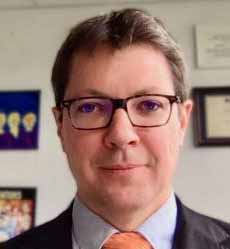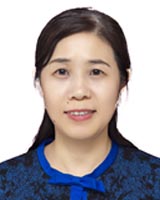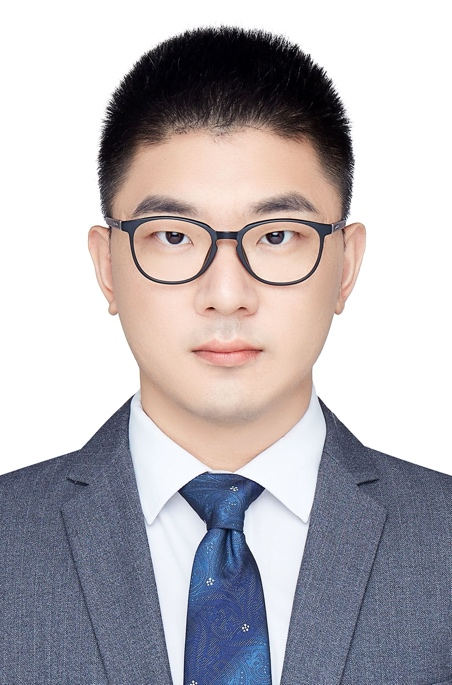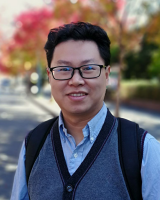Keynote Speakers
Prof. Eduard Axel Jorswieck
Technische Universitaet Braunschweig, GermanySpeech Title: Transceiver and Resource Optimization in Wireless Communications: from 3G to 6G
Abstract: The efficient design of transmitter and receiver operations as well as efficient usage of resources in wireless communications is based on optimisation models and algorithms. In fact, every new generation of mobile communications requires a close-to-optimal solution of certain programming problems in order to select the suitable technologies and their best configurations. In the early wireless systems, resource allocation could be performed based on linear and convex programming since orthogonal multiple access schemes and homogeneous objectives were applied. With multi-carrier and multiple antenna technologies and throughput maximisation, the triumph of convex optimisation began. When other performance metrics, such as energy efficiency, became relevant, quasi- and pseudo-convex, fractional programming methods were successfully applied. Popular non-orthogonal access methods and the goal of higher resource efficiency led to more general non-convex and general global programming problems. Therefore, global programming approaches such as mixed monotonic programming with branch-and-bound methods are recently developed. Currently, heterogeneous wireless system designs are envisioned for 6G wireless, with flexible open radio network architectures. Here we leave classical optimisation methods and proceed towards machine learning approaches. The keynote will lead through these developments and illustrate two recent system designs for 6G wireless networks, one based on global programming and one based on machine learning.
Biography: Eduard Axel Jorswieck is the managing director of the Institute of Communications Technology, the head of the Chair for Communications Systems and Full Professor at Technische Universitaet Braunschweig, Germany. He received the Dipl.-Ing. degree in Computer Engineering and the PhD degree in Electrical Engineering both from TU Berlin in 2000 and 2004, respectively. His main research interests are in the broad area of communications, signal processing, and applied information theory. He is IEEE fellow, and Editor-in-Chief of the EURASIP Journal on Wireless Communications and Networking. He has won several awards, including IEEE Signal Processing Society Best Paper and other conference best papers and best student papers.
Prof. Yuhong Dai
Academy of Mathematics and Systems Science, Chinese Academy of Sciences, ChinaSpeech Title: Recent Advances in Nonlinear Optimization
Abstract: Nonlinear optimization stems from calculus and becomes an independent subject due to the proposition of Karush-Kuhn-Tucker optimality conditions. The ever-growing realm of industrial applications and the vast demand from AI development are driving nonlinear optimization research in new and exciting directions. In this talk, I shall address some recent advances on nonlinear optimization, mainly on unconstrained optimization, constrained optimization, optimization with least constraint violation and minimax optimization.
Biography: Yu-Hong Dai is a Full Professor in the Academy of Mathematics and Systems Science (AMSS), Chinese Academy of Sciences. He received the B.Sc. degree in applied mathematics from the Beijing Institute of Technology in 1992, and received the Ph.D. degree in nonlinear programming from the Institute of Computational Mathematics and Scientific/Engineering Computing, Chinese Academy of Sciences in 1997. He is now the president of Operations Research Society of China (ORSC) and the chief editor of Operations Research Transactions (in Chinese). He is also the director of the Center for Optimization and Applications (COA) of AMSS. His research interests include continuous optimization, integer programming and various optimization applications. He received Shiing-Shen Chern Mathematics Award, Feng Kang Scientific Computing Award, Xiao Shutie Applied Mathematics Award, Second Prize of the National Natural Science of China (Rank 2), and the Tenth Science and Technology Award for Chinese Youth. He also won the China National Funds for Distinguished Young Scientists and a Best Paper Award on the 2011 International Conference on Communications.
Prof. Zhiyong Feng
Beijing University of Posts and Telecommunications, ChinaSpeech Title: Joint Communication and Sensing System Toward 6G Intelligent Machine-type Communication
Abstract: With the rapid development of telemedicine, high level autonomous driving, intelligent manufacturing, and etc., the research on intelligent machine-type communication (IMTC) is imminent. The traditional mobile network technology has been difficult to meet the requirements. To support this, the deep integration of sensing, communication and computing in future mobile communication networks should be studied. This speech will introduce the concept of Joint Communication and Sensing System for IMTC networks, and discuss key challenges and candidate technologies for future research.
Biography: Zhiyong Feng (Senior Member, IEEE) received the B.S., M.S. and Ph.D. degrees from Beijing University of Posts and Telecommunications (BUPT), China. Now she is a professor at BUPT and the Director of Key Laboratory of Universal Wireless Communications, Ministry of Education, China. She received Outstanding Young Researcher Award from Natural Science Foundation of China (NSFC) in 2015, and she has been Millions of Talent Projects National candidates. Currently, she is serving as Associate Editors-in-Chief for China Communications, and a technological advisor for NGMN. She is a member of Expert Committee of China Intelligent Transportation Systems Association, chair of the Information and Communication Test Committee of the Chinese Institute of Communications. Her main research interests include the cognitive wireless network, wireless network virtualization for 5G, and joint wireless communication and radar sensing system. Her main research interests include wireless network architecture design and radio resource management in mobile networks, spectrum sensing and dynamic spectrum management in cognitive wireless networks, and integrated sensing and communications.
Prof. Zhaolong Ning
Chongqing University of Posts and Telecommunications, ChinaSpeech Title: Intelligent Communication and Network Resource Optimization at The Network Edge
Abstract: Pervasive Edge Computing (PEC) refers to one kind of edge computing that merely relies on edge devices with sensing, storage and communication abilities to realize peer-to-peer offloading without centralized management. However, on one hand, users may not make appropriate scheduling decisions based on their local observations. On the other hand, how to guarantee the fairness among different edge devices in the fully decentralized environment is rather challenging. In this talk, we first present a multi-agent Imitation learning model in PEC networks, to adapt to the high mobility of users and resolve the shortcomings of the limited storage capacity of edge servers. Then, we propose a remote health monitoring model for Internet of medical things, as an example for delay-sensitive service applications. Highlighting its characteristics, the cost of patients depends on medical criticality, age of information and energy consumption. After that, we propose an imitation learning enabled online task scheduling algorithm with near-optimal performance for Internet of vehicles, as an example for high-concurrency service applications. Specially, an expert can obtain the optimal scheduling policy by solving the formulated optimization problem with a few samples offline.
Biography: Zhaolong Ning received the PhD degree from Northeastern University, China in 2014. He was a research assistant with Kyushu University from 2013 to 2014, Japan, and a Hong Kong Scholar with The University of Hong Kong from 2019 to 2021. Currently, he is a full professor at the Chongqing University of Posts and Telecommunications, China. His research interests include Internet of things, mobile edge computing, and network optimization. He has published more than 120 scientific papers in international journals and conferences, such as IEEE JSAC, IEEE TMC, IEEE TPDS, IEEE T-ITS, IEEE COMST, IEEE COMMAG, IEEE Wireless Communications, and so on. He is the recipient of several prestigious awards including the Best Land Transportation Paper Award of IEEE TVT 2020, Best Paper Award of IEEE Systems Journal 2019 and so on. He serves as an associate editor or guest editor of several journals, such as the IEEE TII and IEEE TCSS. He has also chaired more than 20 international conferences, such as IEEE GLOBECOM and IEEE Healthcom. He is a Highly Cited Researcher (Web of Science), Highly Cited Chinese Researchers (Elsevier), and elected to be the Young Elite Scientists Sponsorship Program by China Association for Science and Technology.
Prof. Lei Shu
College of Engineering, Nanjing Agricultural University, ChinaSpeech Title: Applying Mobile Crowd Sensing for Data Collection in Smart Agriculture
Abstract: Smart agriculture enables the efficiency and intelligence of production in physical farm management. Though promising, due to the limitation of the existing data collection methods, it
still encounters few challenges required to be considered. Mobile Crowd Sensing (MCS) is a technique where many individuals having mobile devices, e.g., smartphones and wearable equipment, are capable of sensing and sharing information of interest, aiming to complete large-scale and complex sensing tasks with three beneficial characteristics: 1) cost-effectiveness; 2) scalability; and 3) mobility. With the Internet of Things becoming a reality, smartphones are widely becoming available even in remote areas. Hence, both the MCS characteristics and the plug-and-play widely available infrastructure provide enormous opportunities for MCS-enabled smart agriculture, opening several new opportunities at the application level. This report extensively evaluates Agricultural Mobile Crowd Sensing (AMCS) and provides insights for agricultural data collection schemes. In addition, we offer a comparative study with the existing agriculture data collection solutions and conclude that AMCS has significant benefits in terms of flexibility, collecting implicit data, and low-cost requirements. To this end, we perform a detailed analysis of the challenges and opportunities that concerns MCS-enabled agriculture by putting forward seven potential applications of AMCS-enabled agriculture.
Biography: Lei Shu (Senior Member, IEEE) received the B.S. degree in computer science from South Central University for Nationalities, China, in 2002, the M.S. degree in computer engineering from Kyung Hee University, South Korea, in 2005, and the Ph.D. degree from the Digital Enterprise Research Institute, National University of Ireland, Galway, Ireland, in 2010. Until 2012, he was a Specially Assigned Researcher with the Department of Multimedia Engineering, Graduate School of Information Science and Technology, Osaka University, Japan. He is currently a Distinguished Professor with Nanjing Agricultural University, China, and a Lincoln Professor with the University of Lincoln, U.K. He is also the Director of the NAU-Lincoln Joint Research Center of Intelligent Engineering. He has published more than 400 articles in related conferences, journals, and books in the areas of sensor networks and Internet of Things. His current H-index is 60 and i10-index is 197 in Google Scholar Citation. His current research interests include wireless sensor networks and the Internet of Things. He has also served as a TPC member for more than 150 conferences, such as ICDCS, DCOSS, MASS, ICC, GLOBECOM, ICCCN, WCNC, and ISCC. He was a recipient of the 2014 Top Level Talents in Sailing Plan of Guangdong Province, China, the 2015 Outstanding Young Professor of Guangdong Province, and the GLOBECOM 2010, ICC 2013, ComManTel 2014, WICON 2016, SigTelCom 2017 Best Paper Awards, the 2017 and 2018 IEEE Systems Journal Best Paper Awards, the 2017 Journal of Network and Computer Applications Best Research Paper Award, and the Outstanding Associate Editor Award of 2017, and the 2018 IEEE Access. He has also served more than 50 various Co-Chair for international conferences/workshops, such as IWCMC, ICC, ISCC, ICNC, Chinacom, especially the Symposium Co-Chair for IWCMC 2012, ICC 2012, the General Co-Chair for Chinacom 2014, Qshine 2015, Collaboratecom 2017, DependSys 2018, and SCI 2019, the TPC Chair for InisCom 2015, NCCA 2015, WICON 2016, NCCA 2016, Chinacom 2017, InisCom 2017, WMNC 2017, and NCCA 2018.





